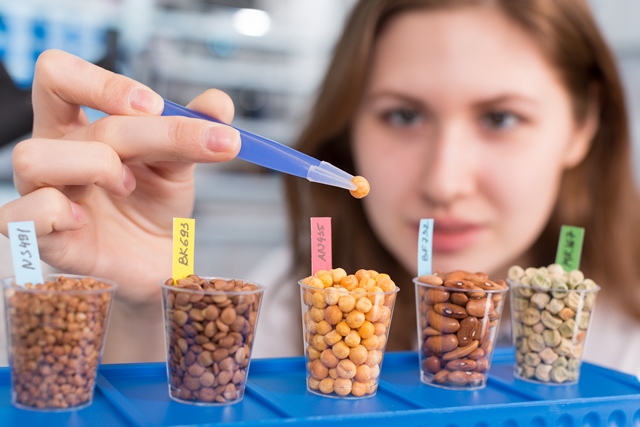Research reveals next-gen proteins tipped for the mainstream
24th April 2020

The next-generation proteins best-positioned to displace today’s plant-based proteins in new research exploring the future of the food industry.
The findings, from research and analysis firm FutureBridge, comes as consumer demand for a healthier and more sustainable diet continues to drive new plant protein products onto retail shelves.
Indeed, the global plant-based protein market will reach $10.8 billion by 2022, supported by a CAGR of 6.7%.
But growing demand raises complex issues for the industry, from the sustainability of ingredient sourcing to the nutritional listing of formulations.
“Companies must look to the next wave of plant proteins to provide more options during product formulation,” said Sarah Browner, FutureBridge’s food and nutrition lead analyst.
“The proteins which are most utilized in plant-based products today have several problems,” said Sarah Browner. “Pea protein, for example, has a very pronounced flavor which is difficult to mask while soy scrambles to move away from its association with GMO.”
Using its in-depth domain know-how and start-ups database combined with its in-house software and data analytics reveal the four next-generation plant-based proteins best-positioned to displace first-generation alternative proteins.
This selection builds on a detailed analysis of available technologies using a set of parameters, including functionality, nutrition, scalability, and sustainability:
Mung bean mimics egg
Mung bean has many of the same amino acids as eggs that provide attractive gelation and emulsification properties. Usage of mung bean instead of eggs allows a reduction of 1 billion gallons of water in production per year.
Chickpea challenges the mighty pea
Chickpea is quickly rising through the rankings as an attractive plant protein for meat analogs that rivals soy, wheat, and pea. For example, a research study identified that the protein digestibility of lysine and proline was higher in extruded chickpea than in yellow pea.
Coconut’s characteristics win in dairy
With the alternative dairy segment reaching $49.9B, the market share of coconut will rise. All 20 manufacturers of plant-based cheese in our database utilize coconut protein as a key ingredient.
Seaweed for taste without the smell
The global seaweed and seaweed product market is projected to be $26 million by 2025. Our research spotlights the requirement for clean-label umami taste in the alternative seafood segment as a critical driver of seaweed’s demand in the future.
Our Clients
Our long-standing clients include some of the worlds leading brands and forward-thinking corporations.
- © 2021 Cheers Interactive (India) Private Limited. All rights reserved. FutureBridge ® is a registered trademark of Cheers Interactive (India) Private Limited.


































